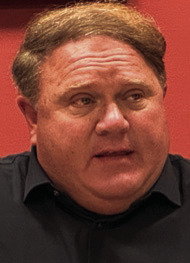What other papers are saying
By Staff
Congress has bigger issues than steroids in baseball
Which one of the following issues does not belong near the top of Congress' list of priorities?
A) Wars in Iraq and Afghanistan; B) nuclear weapons programs in Iran and North Korea; C) a proposed $2.5 trillion federal budget that projects a deficit of $370 billion; D) skyrocketing health care costs, including a Medicaid program that is projected to spend $1.12 trillion in five years; E) Social Security; or F) the use of steroids by Major League Baseball players.
If you answered "F," you have more sense than many in Congress.
The House Government Reform Committee on Wednesday issued subpoenas to current or former baseball stars Jose Canseco, Mark McGwire, Jason Giambi, Curt Schilling, Sammy Sosa, Rafael Palmeiro and Frank Thomas, ordering them to testify at a scheduled March 17 committee hearing investigating the use of steroids by MLB players.
The committee also subpoenaed players' association head Donald Fehr, MLB Executive Vice Presidents Rob Manfred and Sandy Alderson, and San Diego Padres General Manager Kevin Towers.
It also demanded a variety of documents, including records of league drug tests.
The committee, which has jurisdiction over the nation's drug policy, said it wants to better understand the steps MLB is taking to get a handle on the steroid issue.
Considering the blatant violation of players' privacy rights, and the possible interference with an ongoing investigation and pending high-profile criminal trial in California, the congressmen must believe the matter is a high priority for the country.
A cynic might think the congressmen have other motives; that they see it is an opportunity to grandstand and gain publicity at a time when they are under fire for their inability to deal with more pressing issues. If one weren't so sure of the integrity of Congress, one might draw a parallel with the 1940s House Committee on Un-American Activities hearings investigating communist infiltration of the U.S. film industry. That committee's methods included pressure on witnesses to name former associates, vague and sweeping accusations against individuals, and the assumption of an individual's guilt because of association with a suspect organization. Witnesses who refused to answer were cited for contempt of Congress.
Stanley Brand, a lawyer for the baseball commissioner's office, called this week's subpoenas "an absolutely excessive and unprecedented misuse of congressional power."
Brand may be right on the "excessive" count.
But the committee's action is certainly not unprecedented.













